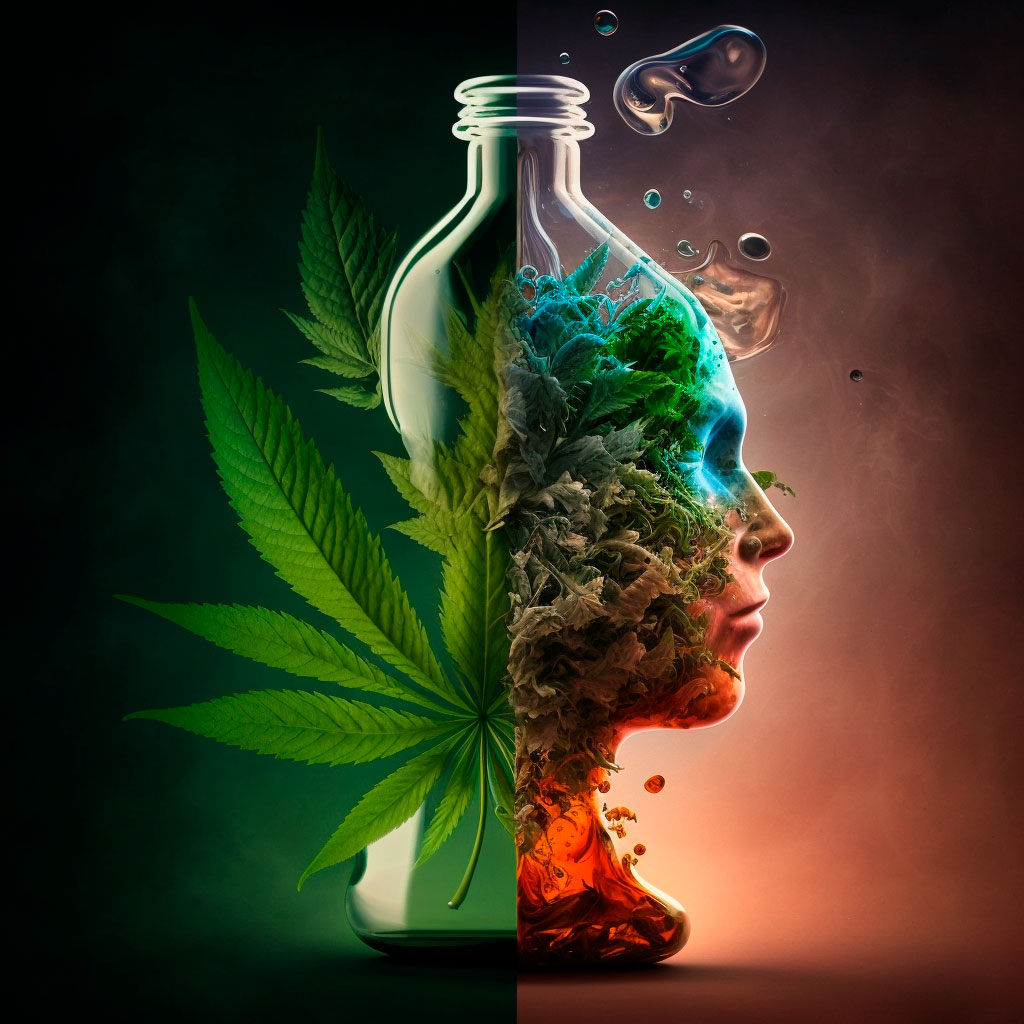
THC (tetrahydrocannabinol) and CBD (cannabidiol) are both cannabinoids found in the cannabis plant. Although they are often associated together, they have very different effects on the human body.
THC is the main psychoactive cannabinoid found in the cannabis plant. This means that when consumed, it can produce psychoactive effects such as a "high", relaxation and euphoria. THC works by binding to cannabinoid receptors in the brain and altering perception, thinking and behaviour. Because of these psychotropic effects, THC is considered a controlled and illegal ingredient in many countries.
CBD, on the other hand, is a non-psychoactive cannabinoid. This means that it does not produce the strange or psychoactive effects of THC. Instead, it is often used for its therapeutic effects, such as reducing anxiety, pain and inflammation. CBD works by binding to cannabinoid receptors in the body, but it does not alter perception, thinking or behaviour in the same way as THC.
It is important to note that CBD can mitigate some of the psychoactive effects of THC. Therefore, many medical cannabis users prefer products with low THC content and high CBD content to minimise psychoactive effects and maximise therapeutic effects.
In conclusion, THC and CBD are two very different cannabinoids with very different effects on the human body. THC is a psychoactive cannabinoid that can produce psychotropic effects, while CBD is a non-psychoactive cannabinoid often used for its therapeutic effects. It is important to understand these differences when consuming cannabis products in order to maximise health benefits and minimise adverse effects.

 Cannabisking.fr
Cannabisking.fr

 Zurich Launches Regulated Sale of Recreational Cannabis
Zurich Launches Regulated Sale of Recreational Cannabis
 The Evolution of Social Perception of CBD
The Evolution of Social Perception of CBD
 Hash Gang Brand : Lifestyle Clothing, Hashish and Cannabisking.ch
Hash Gang Brand : Lifestyle Clothing, Hashish and Cannabisking.ch
 Cannatrade 2023: Come and enjoy a unique experience on our award-winning stand!
Cannatrade 2023: Come and enjoy a unique experience on our award-winning stand!
 The 420: celebrating the evolving cannabis culture
The 420: celebrating the evolving cannabis culture
 The benefits of CBD or herbal vape for herbal medicine
The benefits of CBD or herbal vape for herbal medicine
 The different methods of using CBD
The different methods of using CBD
 The Old Lady and the Dog: A CBD Wellness Story
The Old Lady and the Dog: A CBD Wellness Story